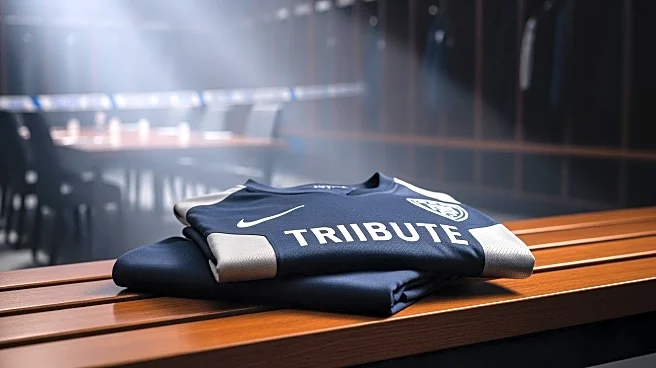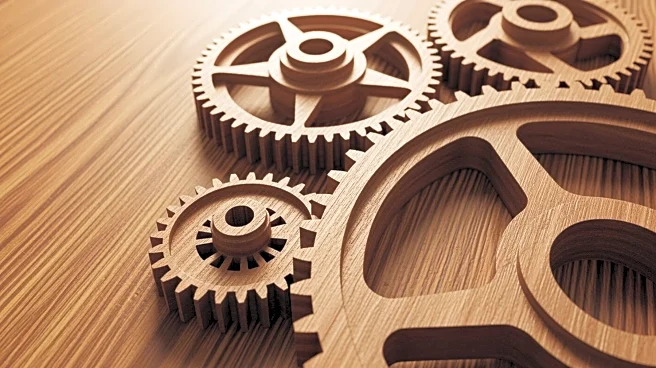What's Happening?
The Dallas Cowboys, led by quarterback Dak Prescott, paid tribute to their late teammate Marshawn Kneeland by wearing shirts featuring his photo before their game against the Las Vegas Raiders. The tribute included Kneeland's jersey displayed in a locker
at Allegiant Stadium and decals of his number on the team's helmets. The Cowboys plan to continue wearing these decals for the remainder of the season. Executive Vice President Stephen Jones emphasized the importance of honoring Kneeland, stating that while the game is significant, there are more important matters at hand. The team was on a bye week following Kneeland's passing, and other NFL teams have also honored him with moments of silence.
Why It's Important?
The tribute to Marshawn Kneeland highlights the impact of his passing on the Cowboys and the broader NFL community. It underscores the emotional and personal connections within sports teams, where players often form close bonds akin to family. This gesture by the Cowboys serves as a reminder of the human aspect of professional sports, where players' lives and legacies extend beyond the field. The ongoing tributes may foster a sense of unity and resilience within the team, potentially influencing their performance and morale throughout the season.
What's Next?
The Cowboys will continue to honor Kneeland in their upcoming games, including their next home game against the Philadelphia Eagles. This ongoing tribute may inspire other teams to adopt similar practices in memory of their own past players. The Cowboys' actions could also lead to broader discussions within the NFL about how teams can support players and their families during times of loss, potentially influencing league policies on memorials and tributes.
Beyond the Headlines
The Cowboys' tribute to Kneeland raises questions about the role of sports teams in addressing player deaths and supporting grieving teammates. It highlights the cultural and ethical dimensions of memorializing athletes, prompting discussions about how teams can balance competitive goals with personal losses. This incident may lead to increased awareness and dialogue about mental health and support systems within professional sports.
















